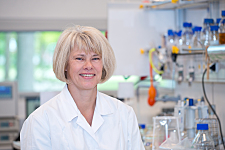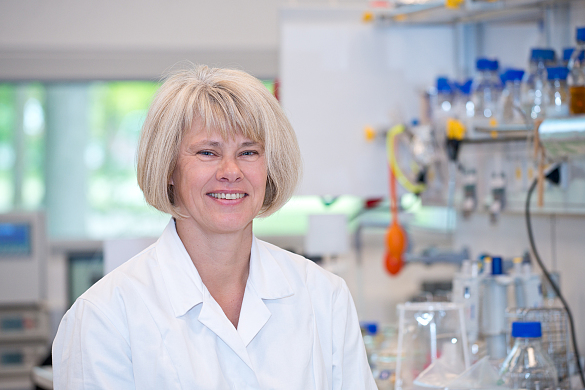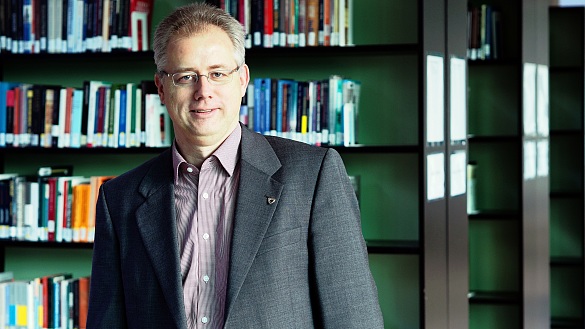More environmentally friendly feed for aquaculture

Jacobs University Bremen is collaborating with the Bremerhaven-based research-oriented company Kaesler Nutrition GmbH on a project to optimise feed in aquaculture.
The project could result in savings of several tens of thousand tonnes of phosphorus emissions. The researchers are focusing on a more environmentally friendly production process and an optimisation of the phytase enzyme, which is used to produce aquaculture feed and separates phosphate from a plant-based storage medium.
More than 90% of most feed consists of plant-based components. However, fish and other livestock are unable to absorb the phosphates contained in them: they also need the phytase enzyme, and it is generally added to the feed. The enzyme separates phosphate from the plant-based storage medium and makes it accessible to the livestock. The better this works, the more it is possible to dispense with the addition, and thus the mining, of mineral phosphorus, which like oil is a finite resource, the deposits of which have been built up over millions of years.
The team of scientists at Jacobs University are now doing research into improvements of the industrially relevant properties of the enzyme, and also into a more environmentally friendly manufacturing process.

The project aims to develop an environmentally friendly and economically viable production process to manufacture phytase, a feed additive. The enzyme itself is to be stabilised within the project for processing during the feed manufacturing process and to be optimised for specific use in aquaculture. Phytase needs to be able to withstand high temperatures in the manufacturing process, but is fed to the fish at low temperatures.
This would enable the feed manufacturers to dispense with the addition of inorganic phosphorus by adding a moderate amount (without overdosing) of phytase and thereby to save up to 7,600 tonnes of phosphorus emissions in agriculture and 35,000 tonnes of phosphorus emissions in aquaculture over a ten-year period.

90-95% of most feed rations today consist of plant-based components. They will naturally contain variable quantities of phytic acid as a storage medium for plant-based phosphate, and in quantitative terms this would suffice to supply the livestock’s phosphate needs. However, an enzyme called phytase is needed to release the phosphorus from phytic acid, and monogastric livestock species (e.g. pigs, poultry, fish) are unable to form this enzyme themselves. For this reason, much phosphorus contained in the plant material is excreted unused via urine and faeces. In the case of terrestrial livestock, moderate quantities of this can be used as a fertiliser (liquid manure); beyond this, the excreted phosphorus contributes indirectly to the eutrophication of bodies of water, indirectly in the case of terrestrial and directly in the case of aquatic livestock.
The project is financed with funding from the European Union and the State of Bremen – by the Senator for Climate Change Mitigation, Environment, Mobility, Urban Development and Housing Construction under the Applied Environmental Research funding programme.

This project focus on innovation an is supported by our heroine Felicia